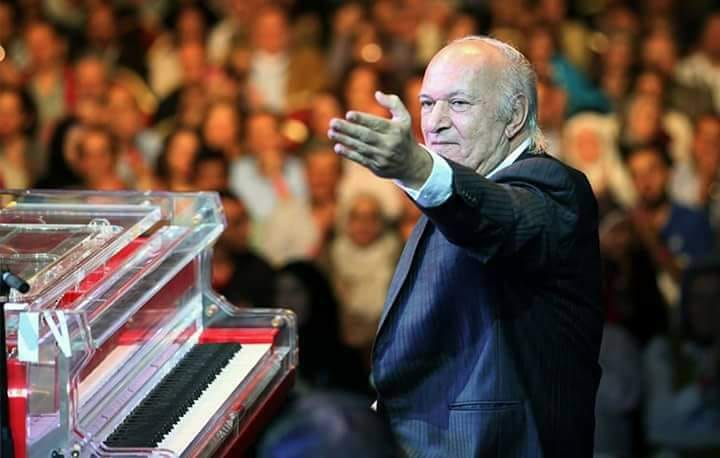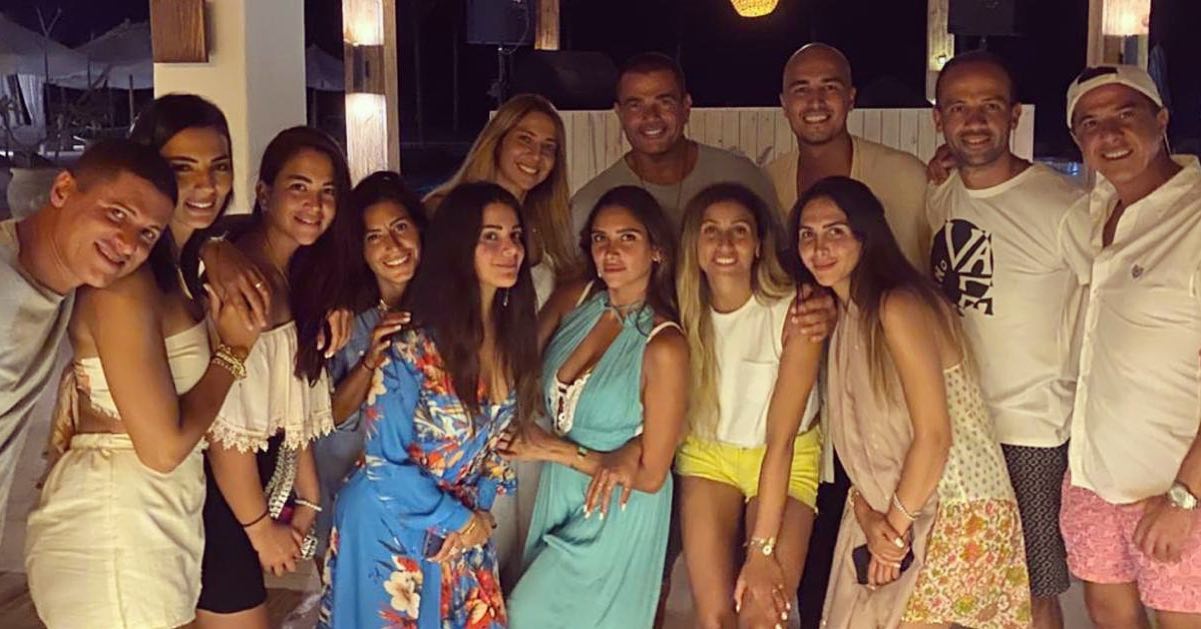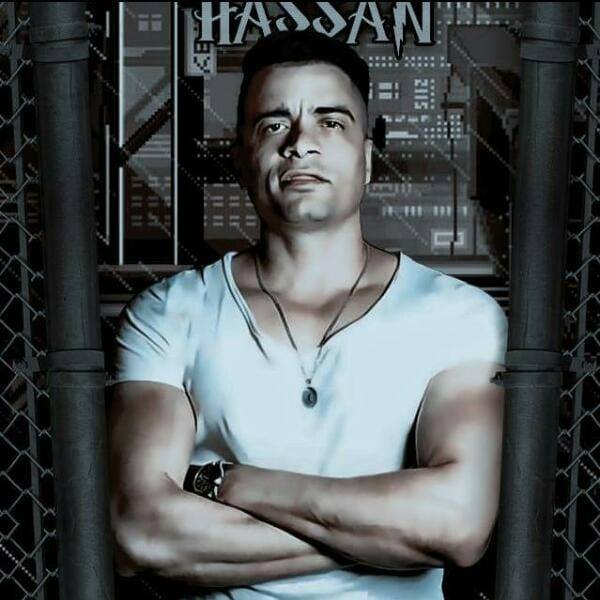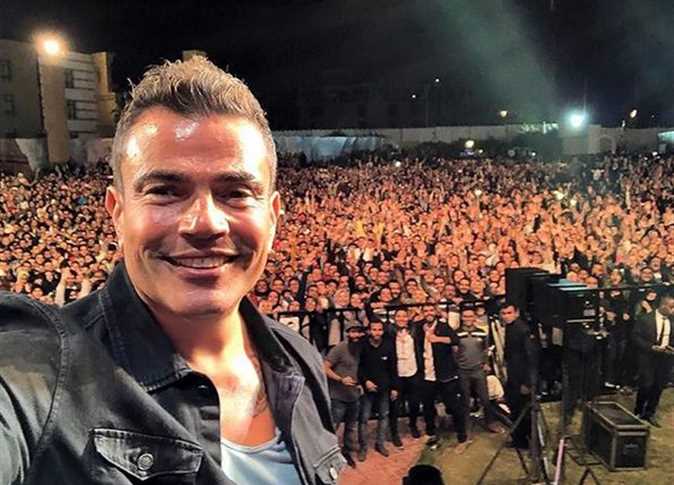I first heard of Mashrou Leila sometime last year, after the ouster of Hosni Mubarak. There was a YouTube clip of one of their songs doing the rounds on the Internet, and it was spreading rather rapidly. It was “Fasateen”, the first single from the band’s first album.
It had poppish sensibilities, a catchy violin hook, and a haunting, strangled vocal line. Soon afterwards, the band came to Cairo for their debut performance and I went to watch them, thinking that such an eclectic band would garner a following, certainly.
But I did not imagine that I would witness what I saw at the Genina theater, one of two shows they played in Cairo. The audience went haywire, everybody already knew all the words, and eventually stormed the stage, and then backstage. It was quite a sight.
“It only happens in Cairo,” says violinist Haig Papazian, speaking ahead of their latest show in Egypt, almost a year after that first visit.
One might assume that bands like the Lebanese Mashrou Leila wouldn’t be so accessible to Egyptian audiences. That would be wrong.
The Lebanese band’s music resonates strongly here. The energy of last year’s show was “very different, it was intense,” says vocalist Hamed Sinno.
“When you are onstage and people storm you, it’s different,” he said.
It’s one of the most difficult things in music to pull off what Mashrou Leila has done, which is create a unique sound that is actually worth listening to. Sure, there is an amalgam of different styles and genres, and you can hear inflections of certain influences, sometimes the Beatles for example when the band does vocal harmonies. But the sum is greater than the parts, the sound is their own and it’s good.
Seven band members, six instruments (well five, there are two guitarists) who play off each other tremendously well, with weighty lyrics even when Sinno is being irreverent. The music displays the amount of work put into it, with a mesh of sweet melodies and sonic dissonance, brooding bass lines, heavy guitar riffs or plaintive chord structures, keyboard lines that run the gamut and of course the signature violin of Papazian.
“We’re obsessive,” says Sinno, “There was a lot of improvisation at the beginning [and now] we’re very used to each other.”
And even though they’re quite adept at writing catchy hooks, their music can be quite dark and foreboding, the sense of unease the backdrop to a bright melody. “It’s somehow more comfortable in the dark [style],” says keyboardist Omaya Malaeb.
Since their debut album, the band has released an EP “al-Hal Romancy” and is working on its third album. The process continues, whether for old songs or new.
“A lot of the songs we recorded, but we play them differently now. From the beginning, we started chiseling away at what would become our sound,” says guitarist Firas Abu-Fakhr.
Papazian adds, “All these songs we recorded on the new album, they’ve changed so much since we started playing it live.”
Abu-Fakhr and Sinno both cast light on how they go about writing and recording music, showing that a balance needs to be struck between what the band is trying to do and what a song requires, because “sometimes songs have their own needs,” says Abu-Fakhr.
“And sometimes it’s concept-driven,” says Sinno, “Especially in the first album where the lyrics were a bit clearer. We would approach it like that.”
Sometimes tone can get lost in words that are read, so it must be noted that all this was being explained by the band members without a hint of pretentiousness, merely in a matter-of-fact manner.
They are, as a group, quite humble and down-to-earth about the whole thing, and seem slightly self-conscious about the manic reactions they sometimes get in Egypt. They evidently love what they do with Mashrou Leila, warts and all, and that gets them through whatever difficulties they face in the process.
As for the actual process, they all have day jobs that inform how they approach their music, being visual artists, graphic designers or illustrators.
“There’s a lot of imagery, that’s what drove us during the recording. We knew that all the songs had the certain colors, certain moods, certain scenes and certain visuals,” says Abu-Fakhr.
Then they work on the texture, and how it will sound.
“Different sounds for the same melody line can make it so much better or so much worse. And if there’s something missing, just changing the sound can do that,” says Malaeb.
And that’s why it defies categorization. Sure, there are infusions of jazz, oriental, even hard rock and oftentimes funk, but the “mess” as Sinno calls it, is distinctly of their own making.
“We all live in Beirut, although we’re different we have to deal with a lot of similar stuff, so there’s almost a collective consciousness,” says Sinno.
Ah Beirut, the city from which they hail, as all metropolises, is sure to shape the sound in some way.
“Music in general is at a binary with noise,” Sinno says. “Sound is always split into noise and music, there’s always that tension and sometimes you appropriate that noise into your music. Every city has its sound, there’s a noise, a level at which people talk, an intensity, there’s accents. It makes your sensitivity to noise and how you relate to it a local phenomenon. Political happenings [too].”
Naturally, the band has to be asked about the political upheaval of the region.
“It’s interesting times, I don’t know what to make out of it. Everything is in a process and in progress,” says Papazian.
In Egypt, the band says they support the revolution and hope to see the country emerge from the transition better off.
“Just because we’re 24 and had to grow up in comparable circumstances we’re extremely supportive of the Egyptian revolution and any attempt at trying to reach a democratic state with proper social values and social liberties, personal freedoms,” Sinno says. “With the way the events have strung themselves along, to try and project that on what happens afterwards, it’s absurd, no one knows. We support any attempt at trying to makes one life happier.”
They are also excited about the explosion of music that seems to have occurred after the Egyptian uprising, particularly one artist.
“There’s that peepee song, that’s great, she’s great,” Sinno says in reference to a local accordion player Yousra al-Hawary, before asking “do you guys have her contact? I want to get an autograph.”




